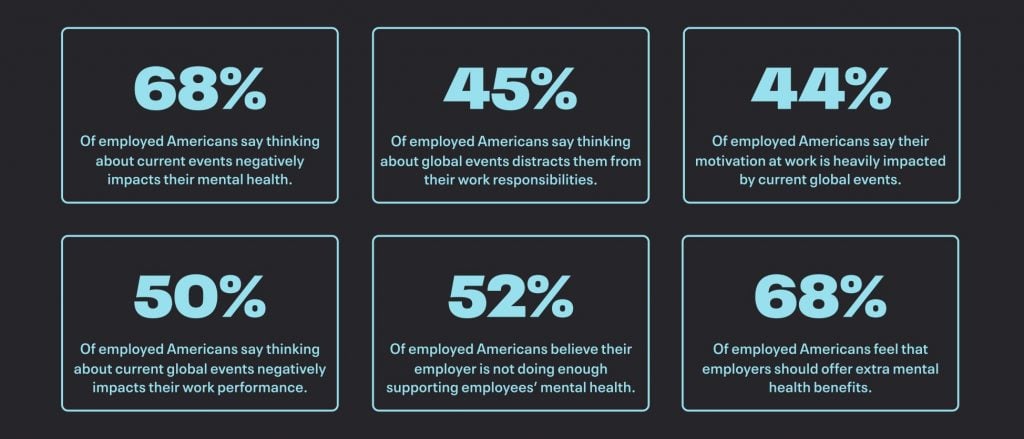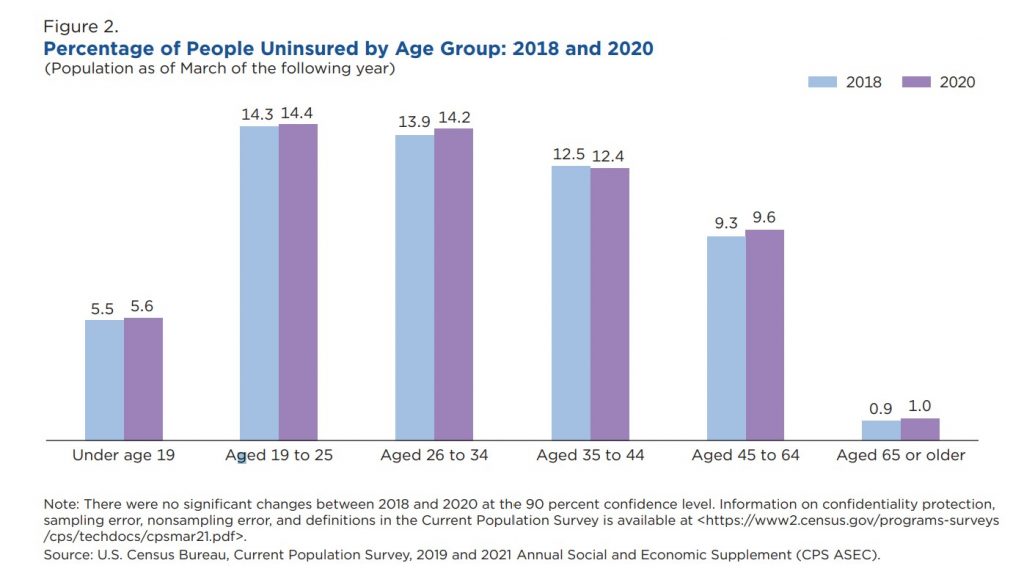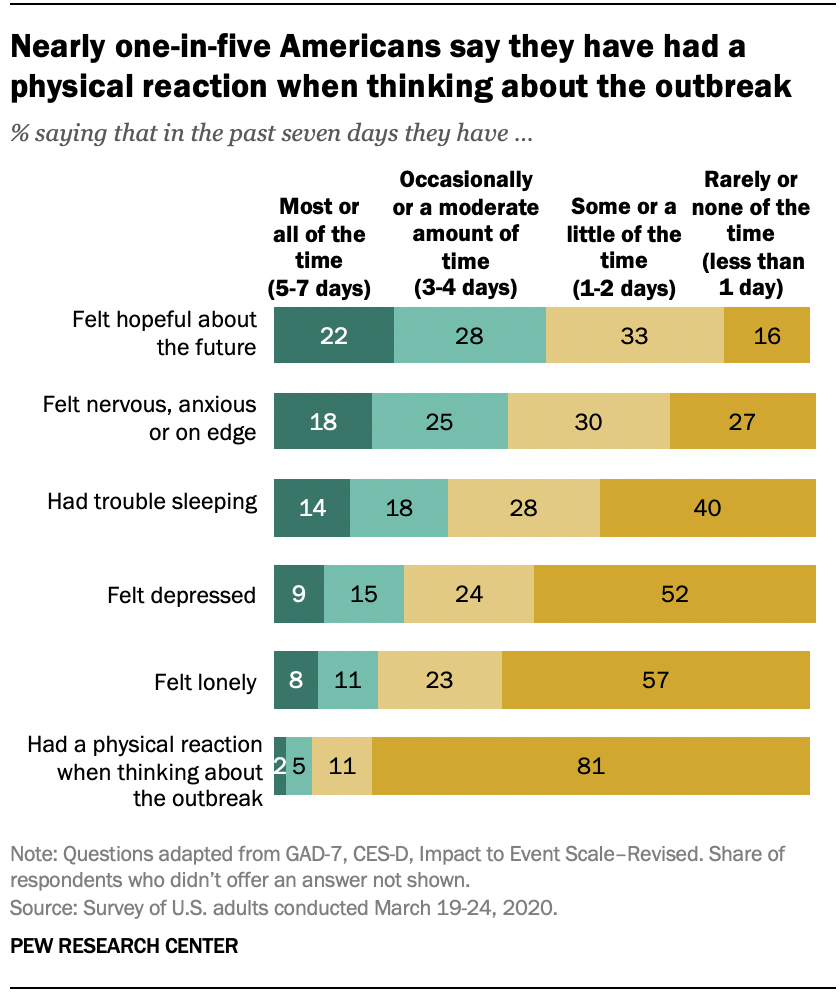COVID-19, the war in Ukraine, and even climate change have all caused folks globally to feel higher doses of stress. And to top it off, they still have to work to make a living: while keeping things together concerning their mental health.
A recently-commissioned survey of over 950 employed U.S. adults, funded by experiential rewards platform Blueboard, highlights a gap between how much stress employees feel and the mental health support companies extend. In its: Impact of global events on employee mental health and work performance report, Blueboard notes:
"HR leaders and people managers often see the impact external stressors have on employees’ mental health. Even so, it can prove problematic to prioritize mental health support at work. But if there was ever a time to invest in employee wellbeing and mental health, it is now."
That notion - is primarily underpinned by the fact that the study further found that sixty-eight percent of employed Americans say thinking about current global events influences their mental health. Half of employed Americans (fifty percent) say considering current international events negatively impacts their work performance.

Workers Feel Consequences of World Affairs
Most American workers: at least according to the survey, say they feel the impact of global events, finding that men spend more time than women thinking about world affairs (ninety-five percent vs. ninety-one percent).
And eighty-nine percent of men say they do so once or more weekly. For women, that is eighty-one percent. Men say they think about world events several times a week or more at the rate of eighty-two percent vs. seventy percent of women who do the same. Those who say they do it once a day or more, fifty-five percent men and forty-seven percent women.
Thinking is merely half of it - as these thoughts mean adverse impacts on one's mental health. According to the survey, more than two-in-three employed Americans (or sixty-eight percent) say thinking about current global events hurts their mental health.
And more than one-in-three (or thirty-five percent) say it has a 'major' or moderate negative impact on their mental health. Eleven percent of employed Americans say thinking about current global events has a 'major' negative impact on their mental health.
That Impacts Productivity/Work Performance
The stress of everyday life and having to balance that with work implies that aspects of one's work-life could (be) impacted. Half of employed Americans, yes, fifty-percent percent, say that thinking about current global events harms their work performance.
More than one-in-four employed Americans (or twenty-eight percent) say thinking about current global events has a 'major/moderate' negative impact on their work performance.
"Employed Americans ages 18-44 are significantly more likely than those ages 55-64 to say thinking about current global events harms their work performance (fifty-six percent vs. thirty-four percent)."
Employed parents with children under 18-years-old; were found to be more likely than their counterparts to say: thinking about current global events harms their work performance, sixty percent of men vs. forty-one percent of women.
Employees Must Expand Mental Health Benefits
While some Americans say their employer increased mental health benefits like additional time off, and therapy/counseling benefits (as a result of) potential stress related to global events: a mere twenty-nine percent say that their employer increased their mental health benefits.
Forty percent of survey respondents say their mental health benefits are the same, while thirty-one percent say their employer does not offer any mental health-related benefits.
According to the survey, employed men are much more likely than employed women to say: that their employer increased their mental health benefits due to the potential stress related to current affairs, with thirty-nine percent of men vs. thirteen percent of women saying as much.
Not Everyone has the Luxury
Something else these studies often fail to highlight: is that not everyone has the luxury of even having benefits. According to the most recent census report, filed in 2020, eighty-seven percent of full-time, year-round workers had private insurance coverage, up from eighty-five percent in 2018.
"In contrast, those who worked less than full-time, year-round were less likely to be covered by private insurance in 2020 than in 2018 (68.5 percent in 2018 and 66.7 percent in 2020)," the Census Bureau notes.

There still remains a chunk of American workers, such as blue-collar workers who work uninsured. And those folks do not have access to the kinds of tools those with more white-collar roles have access to. This makes access to mental health benefits in the workplace - all the more important for employers to expand. No matter the industry.
Mckinsey calls mental health in the workplace: "The coming revolution" in a report where it outlines why employees not only demand better coverage; but why they need it. It further outlines that:
"Preexisting mental health challenges got exacerbated by COVID-19, and based on analysis by McKinsey, could result in a potential 50 percent increase in the prevalence of behavioral health conditions."
Perhaps more telling: data from a recent Pew Research Center study found that seventy-three percent of Americans reported feeling anxious at least a few days per week. That is to say, since the onset of the Pandemic. It also highlights that between mid-February and mid-March 2020: prescriptions for antianxiety medications increased by thirty-four percent.
"During the week of March 15, when stay-at-home orders became pervasive, seventy-eight percent of all antidepressant, antianxiety, and anti-insomnia prescriptions filled were new (versus refills)," the report; goes on to state.
All this makes a pretty good case for employers to step up their game when it comes to listening to employees and what they need. If it is time off, then give it to them, if it is therapy once weekly, offer it, as it will only positively benefit your business outcomes in the end.

We have already seen one of the greatest mass resignations in recent years, during the Pandemic, proving that employees appear more than fed up with the pressure of the workplace and how things used to be. It would be a shame to lose loyal employees over a small investment that will likely only positively impact (both) the employee and employer.



